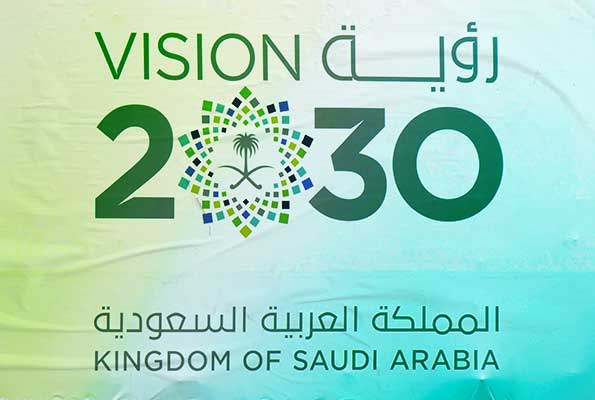As part of the Kingdom’s efforts to expand its automotive industry under the ambitious ‘Vision 2030’ roadmap, Hyundai and the Saudi Arabian Wealth Fund have decided to collaborate on the construction of a manufacturing facility, with an anticipated investment of over USD 500 million.
Hyundai will have 70% stakes in the project, under which 50,000 units will be produced annually by 2026, including both electric and internal combustion cars.
The largest economy in the Arab world is now concentrating on developing its own EV market as part of its ‘Vision 2030’ plan.
A firm dedicated to electric vehicle infrastructure was established in October 2023 by PIF and the Saudi Electricity firm to install 5,000 fast chargers around the Kingdom by 2030.
Furthermore, the PIF established a business to increase electric vehicle production in the Kingdom and strengthen regional supply chain competencies for the automotive sector.
The goal of the National Automotive and Mobility Investment Company, also known as Tasaru Mobility Investments, is to promote strategic collaborations and investments with domestic and international private businesses.
The PIF-backed luxury electric vehicle manufacturer Lucid Group announced in September 2023 about opening its first global manufacturing facility in the Kingdom. The plant can produce 155,000 EVs annually.
The PIF also introduced Ceer, the first electric car brand in the country, in November 2022 to bring in over USD 150 million in foreign direct investment and generate up to 30,000 jobs.
According to the PIF, the localisation of Hyundai’s vehicles will spur additional investment in the automotive and mobility sectors of the Kingdom’s economy as well as expedite their growth.
At the plant, Hyundai, the third-largest automobile manufacturer in the world, will offer technical and commercial support.
The Middle East, especially Saudi Arabia, is seeing a significant shift in economic and industrial structures that presents tremendous opportunities for expansion across a range of industries. As a result, Hyundai is expanding its business diversification in this region.
Ju-yung Chung, the founding chairman of Hyundai Motor Company, was successful in several Middle Eastern ventures in the 1970s, notably the building of Saudi Arabia’s Jubail Industrial Port.
The group’s current new business opportunities include growing orders for high-tech power plants, collaborating in the creation of a hydrogen mobility ecosystem, and setting up a vehicle manufacturing plant in Saudi Arabia to service the regional market.
Hyundai Gaining Big In Middle East
The Hyundai Group’s Executive Chair, Euisun Chung, paid a visit to the NEOM megaproject building site this week. The project is a representation of Saudi Arabia’s future aspirations. He gave an update on the subterranean tunnel project for NEOM’s linear city, The LINE, on October 23.
The LINE employs about 2,500 people, including executives and workers from Hyundai Engineering & Construction (Hyundai E&C).
Furthermore, to create and expand an ecosystem for hydrogen-based mobility in Saudi Arabia, Hyundai Motor has inked memorandums of understanding (MOUs) with the Saudi Public Transport Company (SAPTCO), Air Products Qudra (APQ), and the Korea Automotive Technology Institute (KATECH).
With the shipment of two ELEC CITY Fuel Cell buses to the market in 2020 and the heavy-duty vehicle XCIENT Fuel Cell in 2021, Hyundai is already leading Saudi Arabia’s shift to hydrogen energy.
With the extension of the second phase of the Jafurah gas field, among other infrastructure projects, Hyundai hopes to grow its presence in Saudi Arabia.
The ‘Amiral’ project, a massive petrochemical complex facility project managed by Aramco valued at approximately USD 4.8 billion, was awarded to Hyundai E&C as its operator in June 2023. This was the largest order a Korean business had ever gotten from the Kingdom.
The Mazan gas and oil processing facility in Saudi Arabia, the Barakah nuclear power plant in the United Arab Emirates (UAE), the Lusail Plaza Tower in Qatar, the Shuwaikh Port renovation project in Kuwait, and the Basra refinery in Iraq are just a few of the Middle Eastern projects that Hyundai E&C is currently working on. It is currently working on 23 building projects totalling KRW 26.3 trillion (USD 19.4 billion).
Hyundai Rotem, a group affiliate, is increasing its footprint in the Middle East by working on the KRW 756 billion (USD 558 million) Cairo electric train project, which was mandated by the Egyptian Tunnel Authority (NAT).
Based on its technologies for environmentally friendly trains, including hydrogen electric trams, Hyundai Rotem also plans to enter the Middle Eastern railway infrastructure market.
Hyundai Steel, a group affiliate, is bolstering its competitiveness in the Middle East by offering a wide range of energy products, such as steel pipes, long sections, and plates. In response to the growth of LNG energy projects in the area, it is creating new steel pipe materials for gas transportation and providing heavy plates to Saudi’s Juaymah Crude Terminal in 2022.



